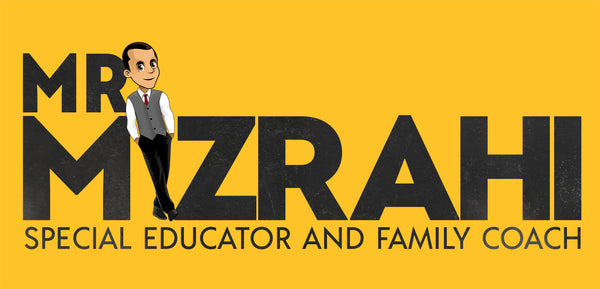
How to Support Your Child with Learning Disabilities
Share
Studies show that family involvement plays a big role in getting kids ready to enter school, promoting their school success and preparing them for university.
Of course, as a parent, discovering that your child has a learning disability can bring on a mix of emotions, from fear that he or she will be labelled as lazy or slow to feelings of guilt or despair.
If this sounds familiar, here are some tips for supporting your child’s learning.
1. Learn as much as possible about your child’s disability
Parents can benefit from conducting their own online search to learning as much as they can about their child’s reading, learning or behavioral disability.
If parents become familiar with local organizations online or in person, they can participate in workshops, information sessions and support groups.
If you’re not sure where to begin, try signing up to relevant websites to receive newsletters and joining local groups and parent groups, which can be a wealth of knowledge and connect you to further community services and help.
2. Collaborate with teachers
Another thing that can be beneficial is getting to know your child’s teachers before the school year begins and then communicating with them throughout the school year. You can write an introductory letter to introduce yourself and your child. This establishes with the new teacher that you’re an active parent and that you care.
Introducing yourself creates the opportunity to detail what strategies have worked well with your child so far and get across that you look forward to being involved in your child’s education.
Be sure to provide all your child’s medical and academic records, as that’s the ‘go-to’ place for learning support specialists and it is imperative that they can read about your child and the diagnosis.
Let your child be as active as possible by joining the school’s Facebook page, reading the school’s newsletters, attending parent-teacher interviews and participating in any school or community events.
3. Find out how you can help
It’s also a good idea to talk to your child’s teachers about what he or she is learning and how you can support their learning at home.
If there are fundamental or foundational skills your child needs to learn, meet with the class teacher or learning support team from school and learn how to scaffold that learning for your child.
Many times, learning moves fast at school, and whilst teachers try hard to differentiate a child’s learning at their level, it can only help if parents are prepared to learn what to do and help at home. What greater gift would there be than to work with your child and give them this time?
4. Provide opportunities for your child to use his or her strengths
Children with learning disabilities can suffer from low self-esteem, so one way to combat this is to help them focus on and develop their natural strengths and abilities.
All children have different skills and things they are good at. Some may be good at running or swimming, while others are good at reading or listening; but they should all be allowed to feel good about themselves and their different talents, strengths and skills.
Try to work together with your child to figure out what they feel good about doing, whether it’s sports, singing, painting or photography, and then provide more opportunities for them to develop these talents, as this can help them build confidence in other areas too.
Coach Benjamin Mizrahi. Educator. Learning Specialist. Family Coach. Father. Husband.
More articles on EXECUTIVE FUNCTIONS COACHING (mrmizrahi.com)
